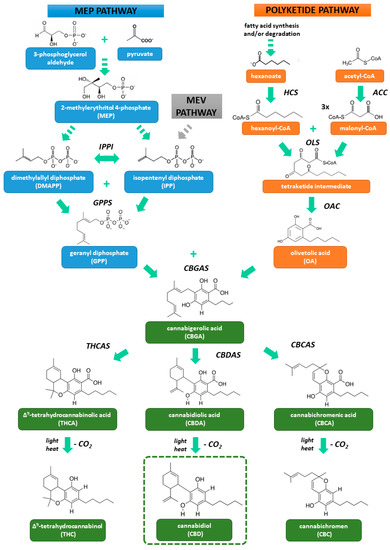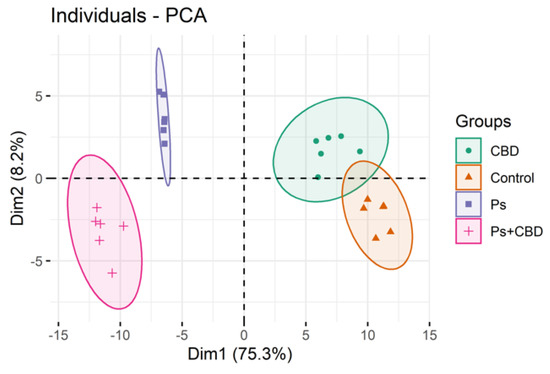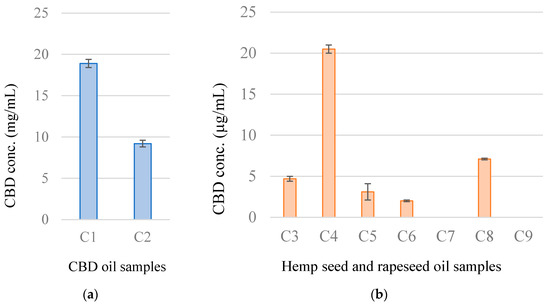 “Natural cannabinoids may have beneficial effects on various tissues and functions including a positive influence on the immune system and the inflammatory process.
“Natural cannabinoids may have beneficial effects on various tissues and functions including a positive influence on the immune system and the inflammatory process.
The purpose of this study was to investigate the effects of natural cannabinoids on the production of pro-inflammatory cytokines by lipopolysaccharide (LPS)-stimulated whole human blood cells.
Levels of the pro-inflammatory cytokines interleukin-1β (IL-1β), interleukin-6 (IL-6), and tumor necrosis factor-α (TNF-α) were measured before and after exposure of LPS-stimulated whole blood to different concentrations of Cannabidiol (CBD) or a combination of CBD and Tetrahydrocannabinol (THC) extract.
LPS stimulated the production of the pro-inflammatory cytokines. Exposure to both CBD and CBD/THC extracts significantly suppressed cytokine production in a dose-dependent manner. Exposure to cannabinoid concentrations of 50 μg/ml or 100 μg/ml resulted in a near-complete inhibition of cytokine production.
This study demonstrates that natural cannabinoids significantly suppress pro-inflammatory cytokine production in LPS-stimulated whole blood in a dose-dependent manner. The use of human whole blood, rather than isolated specific cells or tissues, may closely mimic an in vivo sepsis environment.
These findings highlight the role that natural cannabinoids may play in suppressing inflammation and call for additional studies of their use as possible novel therapeutic agents for acute and chronic inflammation.”

 “In the absence of effective antivirals and vaccination, the pandemic of COVID-19 remains the most significant challenge to our health care system in decades. There is an urgent need for definitive therapeutic intervention.
“In the absence of effective antivirals and vaccination, the pandemic of COVID-19 remains the most significant challenge to our health care system in decades. There is an urgent need for definitive therapeutic intervention. “Cannabidiol (CBD) is a non-intoxicating and generally well-tolerated constituent of cannabis which exhibits potential beneficial properties in a wide range of diseases, including cardiovascular disorders.
“Cannabidiol (CBD) is a non-intoxicating and generally well-tolerated constituent of cannabis which exhibits potential beneficial properties in a wide range of diseases, including cardiovascular disorders.
 “Emotional dysregulation and anxiety are common in people at clinical high risk for psychosis (CHR) and are associated with altered neural responses to emotional stimuli in the striatum and medial temporal lobe.
“Emotional dysregulation and anxiety are common in people at clinical high risk for psychosis (CHR) and are associated with altered neural responses to emotional stimuli in the striatum and medial temporal lobe.
 “Highly purified cannabidiol (CBD) has demonstrated efficacy with an acceptable safety profile in patients with Lennox-Gastaut syndrome or Dravet syndrome in randomized, double-blind, add-on, controlled phase 3 trials.
“Highly purified cannabidiol (CBD) has demonstrated efficacy with an acceptable safety profile in patients with Lennox-Gastaut syndrome or Dravet syndrome in randomized, double-blind, add-on, controlled phase 3 trials. “Mutations in SYNGAP1 are associated with developmental delay, epilepsy, and autism spectrum disorder (ASD). Epilepsy is often drug-resistant in this syndrome with frequent drop attacks.
“Mutations in SYNGAP1 are associated with developmental delay, epilepsy, and autism spectrum disorder (ASD). Epilepsy is often drug-resistant in this syndrome with frequent drop attacks. “In the present study, the antimicrobial effect of Cannabis sativa Futura 75 was evaluated both in vitro against foodborne bacterial pathogens, and on food against naturally occurring microbial groups of minced meat stored for 8 days at 4°C.
“In the present study, the antimicrobial effect of Cannabis sativa Futura 75 was evaluated both in vitro against foodborne bacterial pathogens, and on food against naturally occurring microbial groups of minced meat stored for 8 days at 4°C. “Hemp (Cannabis sativa L.) seed contains high contents of various nutrients, including fatty acids and proteins.
“Hemp (Cannabis sativa L.) seed contains high contents of various nutrients, including fatty acids and proteins.